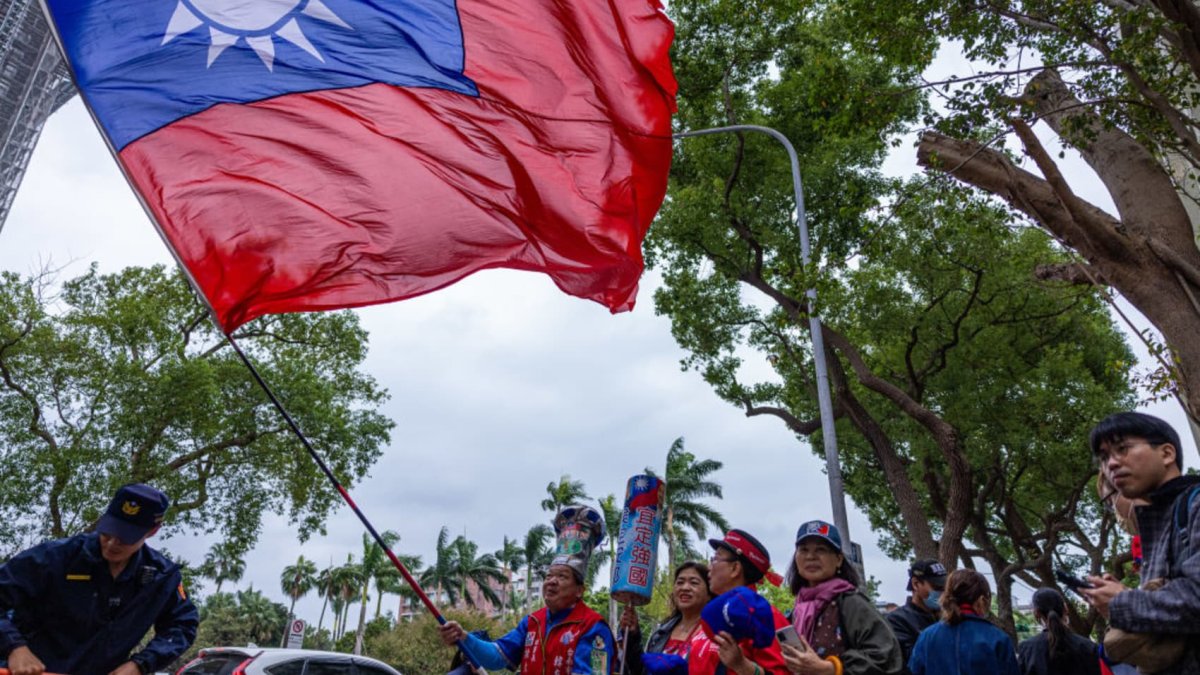Taiwan’s presidential election is a three-way race. These are the parties vying to replace Tsai Ing-Wen.
Annabelle Chih Getty Images
Taiwan’s ruling Democratic Progressive Party will face the Taiwan People’s Party and Kuomintang in the Jan. 13 elections. Foxconn’s founding chairman Terry Gou dropped out hours before the nomination deadline last Friday after a proposed opposition alliance failed to materialize. China’s Taiwan Affairs Office has framed this elections as a choice between “peace and war, prosperity and decline.”
Taiwan’s main opposition parties have filed individual bids to unseat the ruling Democratic Progressive Party as the billionaire founder of Apple supplier Foxconn dropped out of the presidential race hours before the nomination deadline last Friday.
A potential alliance aimed at increasing the prospect of a pro-China government failed to materialize. The plan was announced last Wednesday, but imploded live on local television Thursday. Candidates from the more established Kuomintang and the smaller Taiwan People’s Party could not agree on the leader for a combined ticket.
Last week’s drama would appear to strengthen the hand of the ruling DPP government, which has been leading in independent opinion polls for the election. Taiwan’s president and vice president are directly elected, serve one term of four years and may be re-elected for one additional term.
China’s Taiwan affairs office has characterized the self-ruled island’s election as a choice between “peace and war, prosperity and decline.” This election comes as China has escalated military activity in the Taiwan Strait and other nearby waters as Beijing presses its sovereignty claims over an island it sees as its own.
Taiwan’s elections kick off a year that is littered with numerous elections globally at a time of heightened geopolitical tensions as two major wars rage on. U.S. President Joe Biden‘s reelection bid bookends 2024.
The outcome of Taiwan’s elections will likely go some way in influencing testy U.S.-China ties and impact security in Asia-Pacific more broadly.
China President Xi Jinping told Biden that Taiwan has always been the “most important and sensitive” issue in China’s relations with the U.S., according to an English-language readout from China’s Ministry of Foreign Affairs of the two leaders’ first bilateral meeting in a year on the sidelines of the recent APEC leaders summit in San Francisco.
Biden has pledged to defend Taiwan in the event of a China invasion, irking Beijing. Last year, former U.S. House Speaker Nancy Pelosi visited Taiwan, becoming the highest-ranking U.S. official to visit the island in over two decades. Her trip was one reason that communication between the world’s two leading powers ground to a halt before a tentative resumption only just months ago.
These are the three parties contesting Taiwan’s Jan. 13 polls to elect a new president.
Democratic Progressive Party
Sam Yeh

